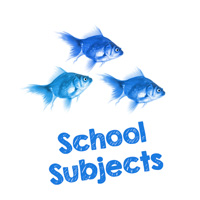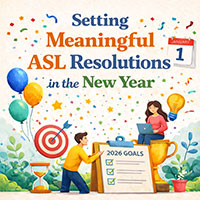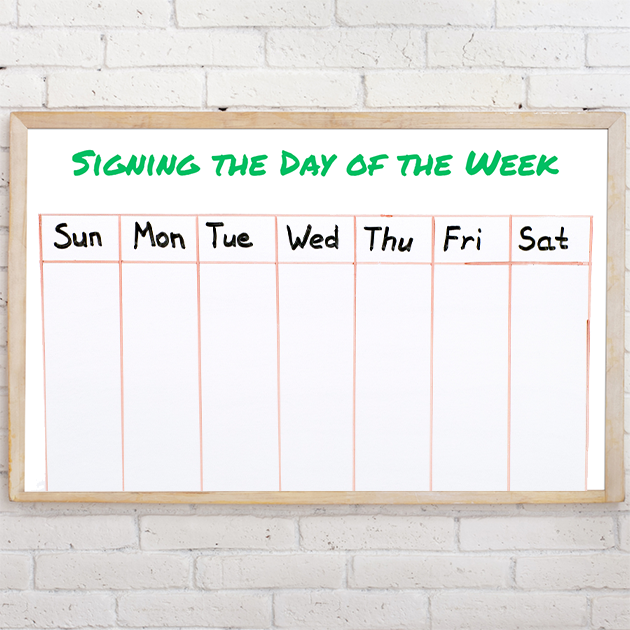Thinking BROAD as you learn sign
Recently I visited with a group of parents of young deaf children who were sharing their frustrations and struggles with learning sign. They were asking for tips to improve their skills as their families learn the language of their young deaf children. Their question is one that I hear often, and I know I have addressed it in previous blogs, but because I hear it so much, I thought it might be good to discuss it again. I will also point out a feature from our site that might help bring some clarity to the issue.
The parent's confusion was with the idea of how one sign can mean one of many English words AND how to know which English word to voice when the sign that they use could have multiple English translations.
Let's use the word FINISH for an example. If you pull up this word on Signing Savvy, in the "This sign is also used to say" (blue) box near the bottom of the page, you will see that this sign can also be used for ALREADY, COMPLETE, DONE, and ALL DONE.
This concept becomes difficult for new learners of the language to comprehend because they are used to all of these words being said differently and spelled differently in the English language. Remember, sign language is a visual language and many times if the concept that is being signed is conceptually correct, you don't need to worry if the word you are going to say is exactly the right English word, as long as the meaning of the concept is conveyed.
To further emphasize this point, if you sign FINISH after the sign HAVE, as in HAVE FINISH, you are changing HAVE into the past tense form of that word, which is HAD. This also works with DO (DO FINISH = DID) or pretty much any verb that you want to make into a past tense.
So if you revisit our example from above:
If the child were to sign: BOOK READ FINISH, you could voice, "I already read that book" or "I finished reading the book" or " I am done with my reading." Hearing people get all worked up over which one is right but to a deaf person, they are probably going to say that the concept is clear - the reading of the book is finished. The exact English words aren't important as long as the concept is understood.
So think broad, focus on the concepts and the big picture, don't get too wrapped up in English word-by-word breakdown, after all ASL is not English.....oh and breath!
ADVERTISEMENTS








HowdyDaveFriday, December 28, 2012
When I first took an ASL class, I thought in terms of "pigeon English" rather than Exact English.
I always imagined Tonto (from the Lone Ranger) with his phrases like "Me go now" etc.
I had previously been using SEE (Signed Exact English.)